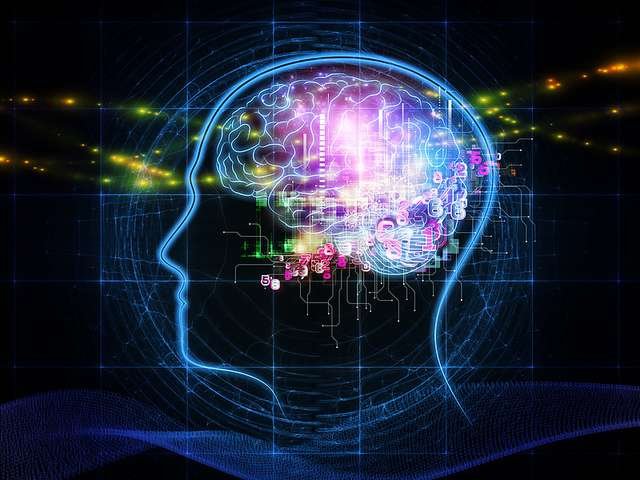1.SLEEP DISORDERS TREATMENT

Sleep disorders are a group of conditions that affect the ability to sleep well on a regular basis. Whether they are caused by a health problem or by too much stress, sleep disorders are becoming increasingly common in the United States. In fact, more than 75 percentTrusted Source of Americans between ages 20 and 59 report having sleeping difficulties fairly regularly.
Most people occasionally experience sleeping problems due to stress, hectic schedules, and other outside influences. However, when these issues begin to occur on a regular basis and interfere with daily life, they may indicate a sleeping disorder.
Depending on the type of sleep disorder, people may have a difficult time falling asleep and may feel extremely tired throughout the day. The lack of sleep can have a negative impact on energy, mood, concentration, and overall health.
In some cases, sleep disorders can be a symptom of another medical or mental health condition. These sleeping problems may eventually go away once treatment is obtained for the underlying cause. When sleep disorders aren’t caused by another condition, treatment normally involves a combination of medical treatments and lifestyle changes.
It’s important to receive a diagnosis and treatment right away if you suspect you might have a sleep disorder. When left untreated, the negative effects of sleep disorders can lead to further health consequences. They can also affect your performance at work, cause strain in relationships, and impair your ability to perform daily activities.
SYMPTOMS OF SLEEP DISORDERS?
Symptoms can differ depending on the severity and type of sleeping disorder. They may also vary when sleep disorders are a result of another condition. However, general symptoms of sleep disorders include:
- Difficulty falling or staying asleep
- Daytime fatigue
- Strong urge to take naps during the day
- Irritability or anxiety
- Lack of concentration
- Depression
HOW ARE SLEEP DISORDERS TREATED?
Treatment for sleep disorders can vary depending on the type and underlying cause. However, it generally includes a combination of medical treatments and lifestyle changes.
MEDICAL TREATMENTS
Medical treatment for sleep disturbances might include any of the following:
- Sleeping pills
- Melatonin supplements
- Allergy or cold medication
- Medications for any underlying health issues
- Breathing device or surgery (usually for sleep apnea)
- A dental guard (usually for teeth grinding).
LIFESTYLE CHANGES
Lifestyle adjustments can greatly improve your quality of sleep, especially when they’re done along with medical treatments. You may want to consider:
- Incorporating more vegetables and fish into your diet, and reducing sugar intake
- Reducing stress and anxiety by exercising
- Creating and sticking to a regular sleeping schedule
- Drinking less water before bedtime
- Limiting your caffeine intake, especially in the late afternoon or evening
- Decreasing tobacco and alcohol use
- Eating smaller low carbohydrate meals before bedtime
2. NEURO-PSYCHIATRIC CONSULTATION

Neuropsychiatry is a specialised branch in the field of medical and clinical sciences that combines the disciplines of neurology (the study and treatment of disorders of the nervous system) and psychiatry (the study and treatment of mental disorders). As such, neuropsychiatry is mainly concerned with issues in higher brain function, such as those related to cognition, emotion and behavior, that cause abnormal or psychiatric problems, and behavioral difficulties that are linked or caused by various neurological conditions.
WHO SHOULD UNDERGO AND EXPECTED RESULTS
Neuropsychiatry or behavioral neurology encompasses a wide range of medical and clinical conditions. Patients who suffer from the following can benefit from a neuropsychiatry consultation:
Cognitive problems – Memory impairment, inattentiveness, distractibility, difficulty in problem solving and loss of self-monitoring skills
Behavior or mood problems – such as depression, anger, inappropriate behavior, apathy, mania and bipolar disorder
Cognitive, behavioral problems and psychosis stemming from illnesses and diseases like brain tumors, lupus, epilepsy, traumatic brain injury, autism and post-traumatic stress disorder (PTSD)
Seizures that are accompanied by behavioral, emotional or cognitive difficulties
Sleep disorders such as narcolepsy, insomnia and sleep apnea that are associated with neurological conditions
Eating disorders such as (bulimia nervosa) or eating too little and (anorexia nervosa) that stem from anxiety and depression
Degenerative diseases like dementia, Parkinson’s and Alzheimer’s that affect a patient’s memory capabilities and often manifest in periods of forgetfulness and disorientation
3. STRESS MANAGEMENT

Stress management is a wide spectrum of techniques and psychotherapies aimed at controlling a person’s level of stress, especially chronic stress, usually for the purpose of and for the motive of improving everyday functioning.
Stress produces numerous physical and mental symptoms which vary according to each individual’s situational factors. These can include physical health decline as well as depression. The process of stress management is named as one of the keys to a happy and successful life in modern society.
Although life provides numerous demands that can prove difficult to handle, stress management provides a number of ways to manage anxiety and maintain overall well-being.
TYPES OF STRESS
ACUTE STRESS
Acute stress is the most common form of stress among humans worldwide.
Acute stress deals with the pressures of the near future or dealing with the very recent past. This type of stress is often misinterpreted for being a negative connotation. While this is the case in some circumstances, it is also a good thing to have some acute stress in life. Running or any other form of exercise is considered an acute stressor. Some exciting or exhilarating experiences such as riding a roller coaster is an acute stress but is usually very enjoyable. Acute stress is a short term stress and as a result, does not have enough time to do the damage that long term stress causes.
CHRONIC STRESS
Chronic stress is unlike acute stress. It has a wearing effect on people that can become a very serious health risk if it continues over a long period of time. Chronic stress can lead to memory loss, damage spatial recognition and produce a decreased drive of eating. The severity varies from person to person and also gender difference can be an underlying factor. Women are able to take longer durations of stress than men without showing the same maladaptive changes. Men can deal with shorter stress duration better than women can but once males hit a certain threshold, the chances of them developing mental issues increases drastically.